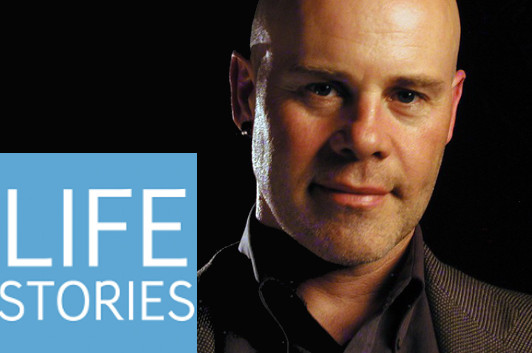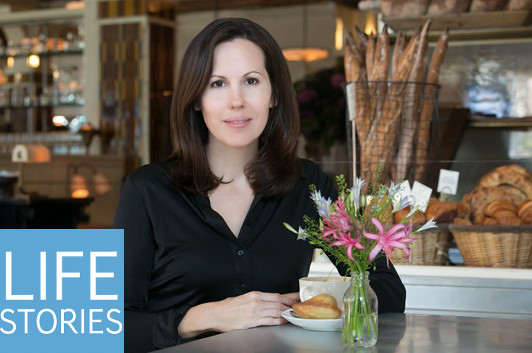Life Stories #92: Thomas Dolby
As I mention at the beginning of this episode, my inner 13-year-old was thrilled at the opportunity to talk to Thomas Dolby about his memoir, The Speed of Sound, because I’d been a big fan of “She Blinded Me with Science” and the album it came off of, The Golden Age of Wireless, for over three decades. But grown-up me was also excited to learn more about the inspiration Dolby took from the ’70s punk scene in London, and about the lessons he learned about himself and his craft while working as a technology entrepreneur in Silicon Valley in the late 1990s and early 2000s.
At one point, I asked Dolby about some of the frustrations he’d felt as a recording artist in the ’80s, and if, given that he’d been very successful as a producer for artists like Prefab Sprout, if he’d ever thought about going “the Brian Eno route.” He gently pointed out just how naive a question that is, in a way that also underlined his own ambitions.
“You know, Brian Eno is not really a ‘route.’ That’s like saying to a painter, did you ever think of going the Leonardo da Vinci route? You know, design helicopters and drum machines, and paint the Mona Lisa? Eno is really a law unto himself. He’s extraordinary both as a producer and as a solo artist, to have produced megahits by U2 and Coldplay but also to have invented ambient music and all the installations he’s done and so on… it’s really extraordinary. I would be flattered to follow in those footsteps. But I don’t think that’s a route you can pick…
You know, when Eno puts out a solo record, you don’t check to see where it got to in the Billboard charts, or how many copies it sold, or whether it’s getting much radio play. You just sort of assume that it’s going to be something that is just there, it’s out, available. It will be influential, but it’s not really going to make a mark on the mainstream. And I suppose I was too chicken to do that. I didn’t like the idea of a world in which my stuff would not even scratch the surface of the mainstream, because I do have the ability to do that and to make records like that. So I wasn’t ready to completely give up on that.”
Listen to Life Stories #92: Thomas Dolby (MP3 file); or download this file by right-clicking (Mac users, option-click). Or subscribe to Life Stories in iTunes, where you can catch up with earlier episodes and be alerted whenever a new one is released. (If you’re already an iTunes subscriber, please consider rating and reviewing the podcast!)
photo: courtesy of Thomas Dolby
13 June 2017 | life stories |
Life Stories #91: Danielle Trussoni
I spoke to Danielle Trussoni about her second memoir, The Fortress, in late 2016, just a few days after the news had broken about Brad Pitt and Angelina Jolie’s marriage falling apart. The timing was apt, given that Trussoni’s book detailed how, in a desperate bid to save her own marriage, she took the windfall she’d earned from her first novel, Angelology, and moved with her husband and two children to a medieval fortress in the middle of France. Spoiler alert: Moving to the other side of the world doesn’t actually put everything that’s gone wrong behind you…
When I mentioned to Trussoni that her husband’s treatment of her read like blatant gaslighting, she told me that she’d never actually heard that term until after she escaped her marriage—to me, that was an important reminder of how easy it can be to find oneself in a relationship this destructive. She also observed that after a childhood shaped by her father’s intense PTSD, she was used to and perhaps even attracted to turbulence and drama… and, too, conditioned to sort out her problems on her own, not showing even those closest to her how bad things had gotten and how much she needed help. As a result, things got very, very bad, and yet she refused to let the experience break her:
“Obviously, there were a lot of negative things that happened, but I came out of this completely happy. I made a piece of art out of an experience that could have been devastating… I sold the fortress after all of this, and I remember when I was packing up before I left, a woman I knew in the village said, ‘You know, some people could never recover from this, because you basically lost everything.’ And, you know, I just decided that that’s not going to happen to me, and I’m not going to be devastated by this. It’s something that happened to me; I’ve learned so much from it. Hopefully, what I’ve learned is in this book, and this book will be out there in the world and create something good.”
Listen to Life Stories #91: Danielle Trussoni (MP3 file); or download this file by right-clicking (Mac users, option-click). Or subscribe to Life Stories in iTunes, where you can catch up with earlier episodes and be alerted whenever a new one is released. (If you’re already an iTunes subscriber, please consider rating and reviewing the podcast!)
photo: Beowulf Sheehan
12 June 2017 | life stories |



 Our Endless and Proper Work is my new book with Belt Publishing about starting (and sticking to) a productive writing practice.
Our Endless and Proper Work is my new book with Belt Publishing about starting (and sticking to) a productive writing practice. 
